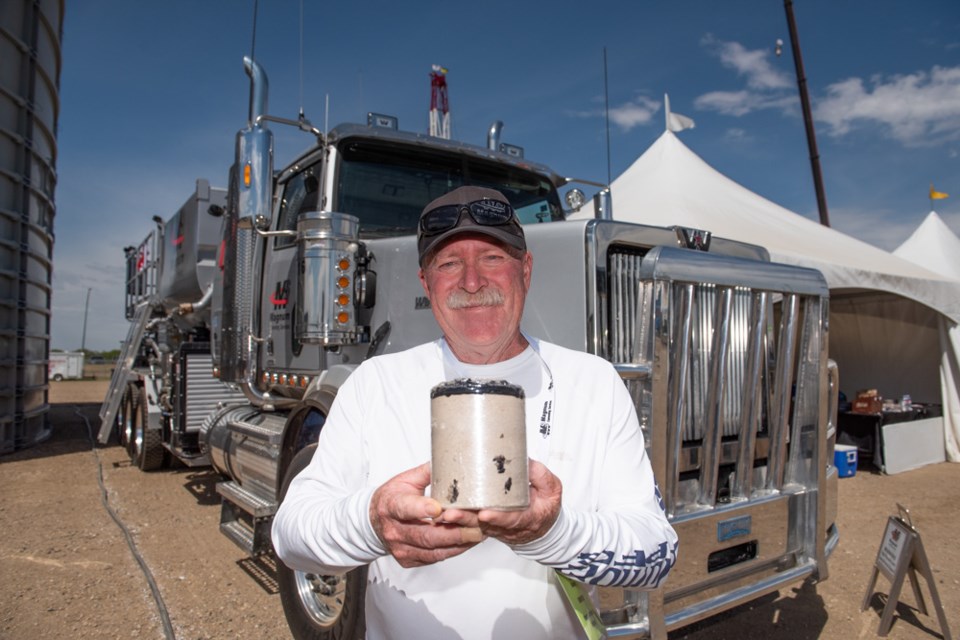Weyburn – Magnum Cementing Services is known for its wellbore cementing, but the company is now parlaying its expertise into the use of cement to stabilize large areas of the surface.
The company, which has a location at Bienfait, servicing southeast Saskatchewan, was showing off their new business line, Magnum Infrastructure.
In Saskatchewan, they also have offices in Kindersley and Shaunavon.
David Kennedy, business development manager, spoke to Pipeline Newson June 6 at the Saskatchewan Oil and Gas Show.
“It’s new to this area, and it’s new to areas in Alberta, but it’s been going on in the east and down south for over 20 years. We introduced it here because we thought it would be a compliment to our business, because we’re doing a lot of drilling pads and commercial yards.
“Basically, we bring equipment in to grade the site, then we have a tilling machine that blends up the in-situ soil, cement, and water. There’s a precise blend of cement designed for every client’s soil conditions. We till it in 12 inches deep, pack, and grade, finishing with a smooth drum packer,” Kennedy explained.
“We’ve done feedlots, laneways, roads, pits, but a lot of the interest is in large drilling pads. There’s a substantial cost and environmental impact with rig and swamp matting, renting that matting and cleaning that matting.”
“There’s a good lifespan on it, but the good thing is when you’re done with the pad and want to put it back into natural state, we can come back and grind it and put it back to the original soil pH levels,” he said.
The tilling machine has a large drum studded with many teeth.
“It’s basically cement mixed into the existing soil. It’s impervious to water. That’s what the grading process is all about, so water runs off it. It is flexible and works well with freeze/thaw cycles,” he said.
“Depending on traffic loads longevity has proven to last 15 to 20 years or more. If troubled areas arise and somehow have been damaged we are able to come back and fix specific areas.”
Stabilization can be reclaimed or undone if needed. “You can seed with natural grasses, or flowers, or whatever you want to do with it. We bring the PH levels back to the original levels.”
Kennedy said, “We’ve been getting a lot of interest, people looking at Magnum Infrastructure, the equipment, and curious about the process, because they’ve never seen it before.”
So far Magnum has done some commercial yards in Saskatchewan but are looking to expand to roads and drilling pads in the province.
He held up a sample, noting you can put chip-seal, gravel, pavement over it, and it will not penetrate it.
“We can deal with muskeg and challenging types of soil. We retrieve samples and send it to our in-house lab. It’s all tested for compressive strength, so that when we arrive on site we have the exact blend that is ideal for that client.”
“It compliments the business that we do. We see a lot of new areas where all they do is strip off the soil, and you’re expected to drive into that area, spring, summer, fall, and winter. This process provides the foundation performance that eliminates potential hazards of damaging equipment and getting stuck in the mud.”
Batteries and new drill sites, pipe yards and truck lots are some possible examples of applications, he noted.
Ěý




